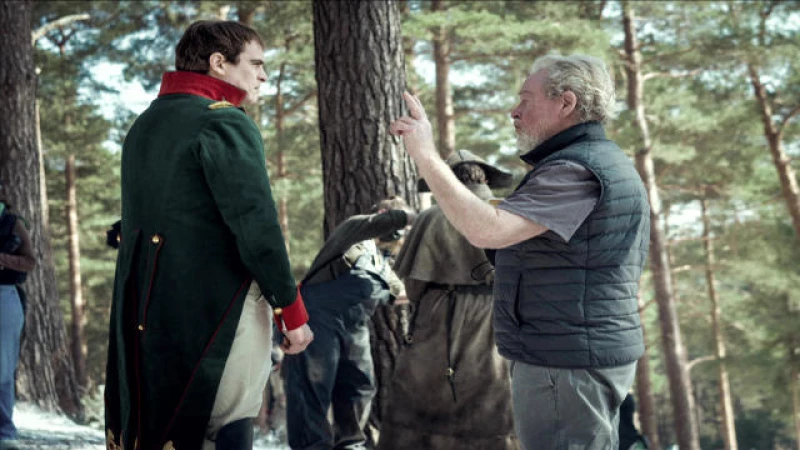History buffs are well aware of the ultimate downfall of Napoleon Bonaparte: Waterloo, 1815. After an impressive reign over European battlefields and the course of European history for over two decades, Napoleon finally met his match in an enemy he couldn't outmaneuver, outgun, or outsmart.
Napoleon, the once-obscure outsider from Corsica, who rose to power in France and conquered a significant portion of Europe through sheer ruthlessness and cunning, ultimately died in defeat, in exile and solitude. Today, his remains rest in a grand tomb in Paris, serving as a testament to an emperor who brought both glory and destruction to his homeland.
However, it seems that history and Hollywood still have more to say about Napoleon.
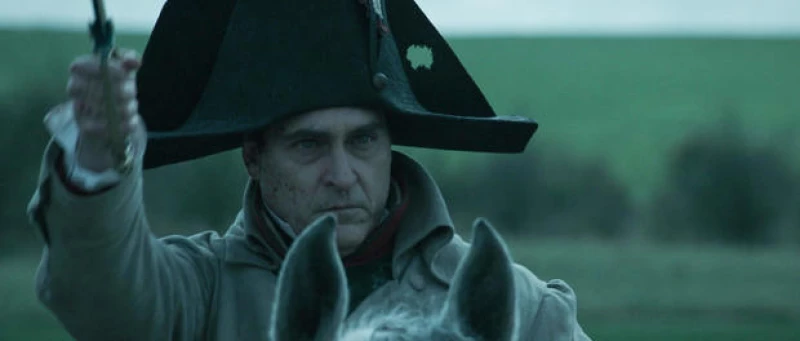
Filmmaker Ridley Scott has taken on the monumental task of bringing "Napoleon" to the big screen, with Joaquin Phoenix portraying the iconic figure. Rather than simply delivering another history lesson, Scott aims to delve into the character of Napoleon through his epic portrayal.
But where does one even begin when tackling a story as vast as Napoleon's? "You've got 10,400 books to start; there's one book written every week since he died," Scott remarked. "By the time you reach a thousand books, dude, I think it's safe to say there's a lot of speculation involved."
"So," Phillips inquired, "are you suggesting that all the historians who have contributed to the narrative have made assumptions, such as the length of Marie Antoinette's hair?"
"No, no, no, no," Scott replied. "I'm not going to walk into that deathtrap. No, are you f***ing kidding me? So, sorry ... But I think we then glean the best of the best. I don't think it's a history lesson. I think it's a character study with violence, with action, with everything you got. I think you got everything in that."
The history books are full of Napoleon's triumphs. But there was another aspect of his life that Scott thinks history hasn't stressed enough: Josephine, the aristocratic widow who became Napoleon's obsession, wife and empress: "What was most telling were the letters of Bonaparte to Josephine, because I wanted the centerpiece of the story not to be just about battles, but about this Achilles' heel towards this woman, which is not about sex, it was about social graces. She could lead him into a room where he didn't know how to walk. She could do that."
She may have also been, according to Scott, the only person to tell him to his face what he really was: You are just a brute that is nothing without me.
Phillips said, "You may make him out as a bit of a bumbler in his love life."
"Bumbler on a personal level," Scott said. "But in the military level? No, gifted."
"But do you draw a connection between the two and go back to this idea of the Napoleonic complex that is somehow compensation? The reputation is that he was a little man. and now we refer to little men with grander ambitions as having Napoleonic complexes."
"I think that's a popular concept, but when he's that successful, who gives a s**t? Are you joking?"
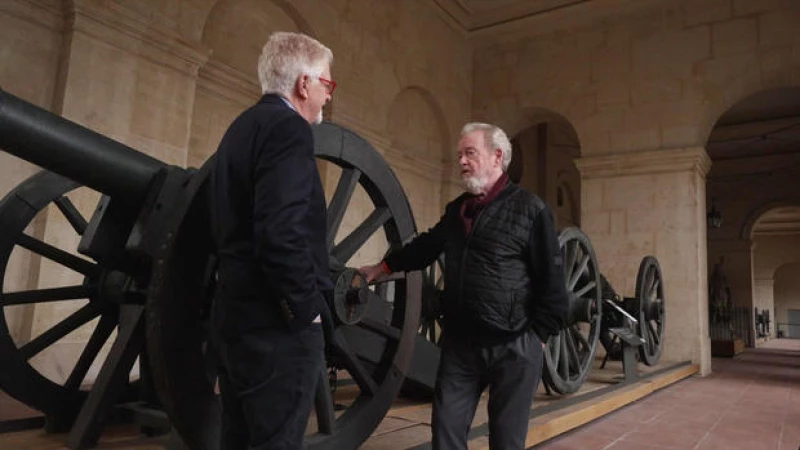
Ridley Scott has no complex about his own success, which has made him a kind of bankable Hollywood grandee. He has a list of epic movies that have become classics: "Gladiator," "Alien," "Thelma and Louise," "Black Hawk Down," and "Blade Runner," which bombed at the box office at first, but has since become a cult classic.
Phillips asked, "Has some of the stuff that you've done that you've liked best become some of the stuff that hasn't done quite so well, if we're speaking in pure box office terms?"
"I like everything I've done," Scott replied. "Ev-ery-thing! Everything. And so, I think you're all wrong!"
It's no accident that Sir Ridley (as he now is) has always made movies with powerful and lasting visual imagery. He's a trained artist, who has always sketched out on storyboards exactly how he wants his movies to look. That infamous creature-birth scene in "Alien" looked like this:
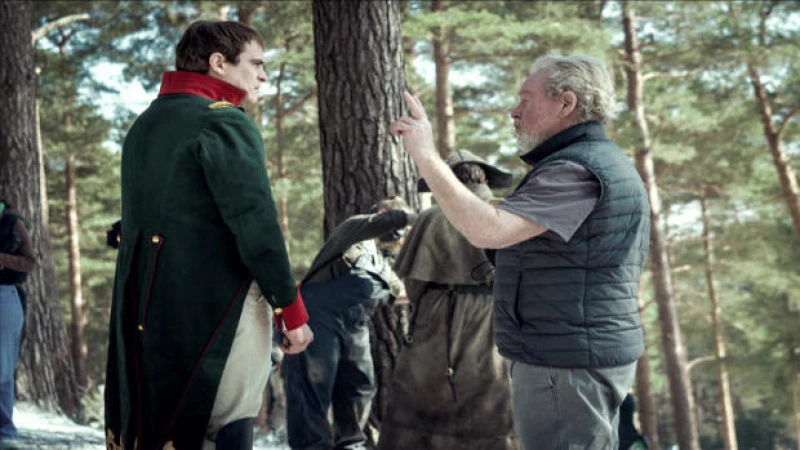
Those gladiators were drawn on paper before they hit the big screen.
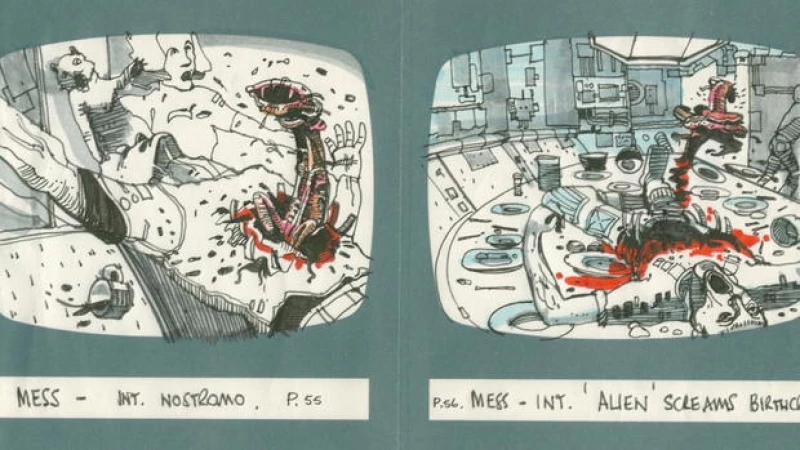
And that Waterloo battle scene took almost comic book form before the cameras rolled.
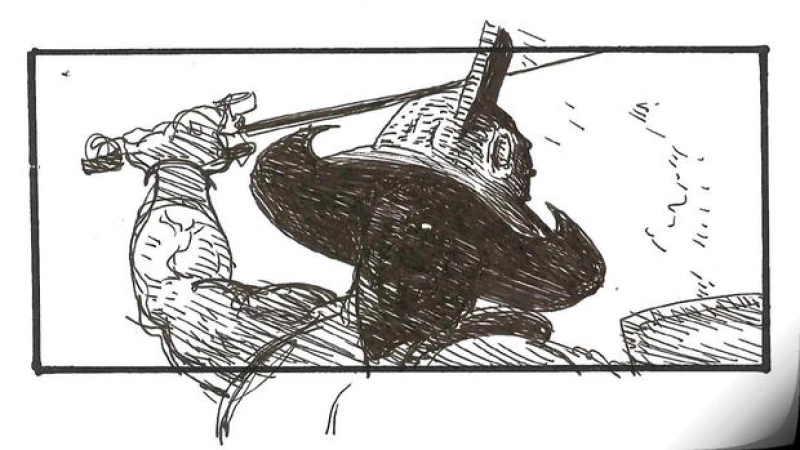
Ridley Scott, the acclaimed filmmaker, attributes the success of his movies to the power of storyboards. He reveals that it was the storyboards that convinced investors to back his projects, resulting in a doubled budget. Scott emphasizes the importance of visualizing the final product through storyboards, stating that many decision-makers in the industry struggle to envision it. He finds this ironic but not surprising, as it is a recurring theme in the movie business.
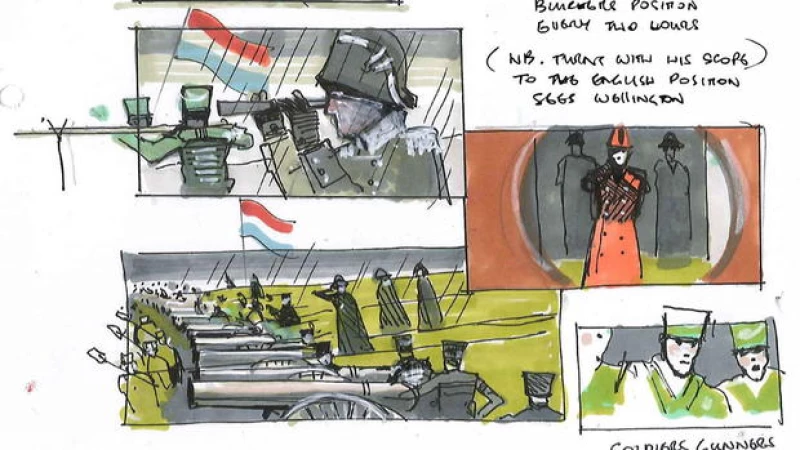
At the age of 85, Ridley Scott shows no signs of slowing down. Despite not making his first movie until the age of 40, after a successful career in TV commercials, Scott is currently working on two new projects, including "Gladiator II." When asked why he continues to pursue filmmaking, Scott simply states that he loves it and finds joy in the process. Winning awards, including an Oscar, is not a priority for him. The opportunity to tell stories and be involved in the creative process is the ultimate reward for Scott.
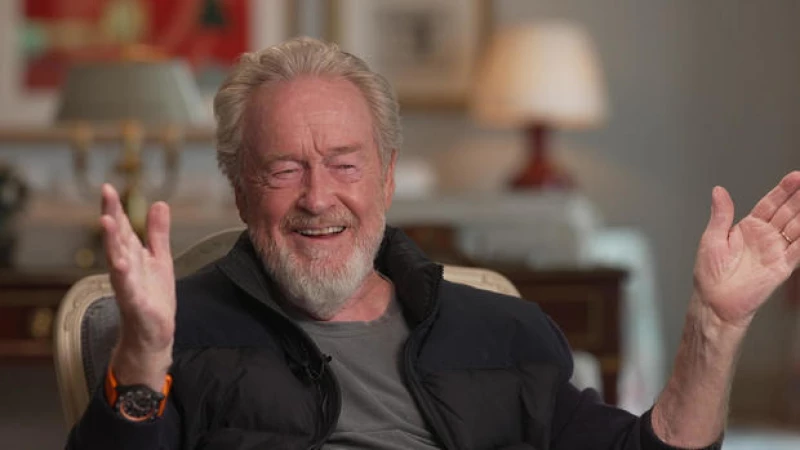
For more information, watch the trailer for Ridley Scott's upcoming film "Napoleon" by clicking on the video link below.
For more info:
- "Napoleon" is currently being shown in theaters in both 70mm and IMAX formats.
Story produced by Mikaela Bufano. Editor: David Bhagat.
See also:
- Director Ridley Scott on "The Martian" ("CBS This Morning")
- "Prometheus": Designing the future
- Ridley Scott ("60 Minutes")

